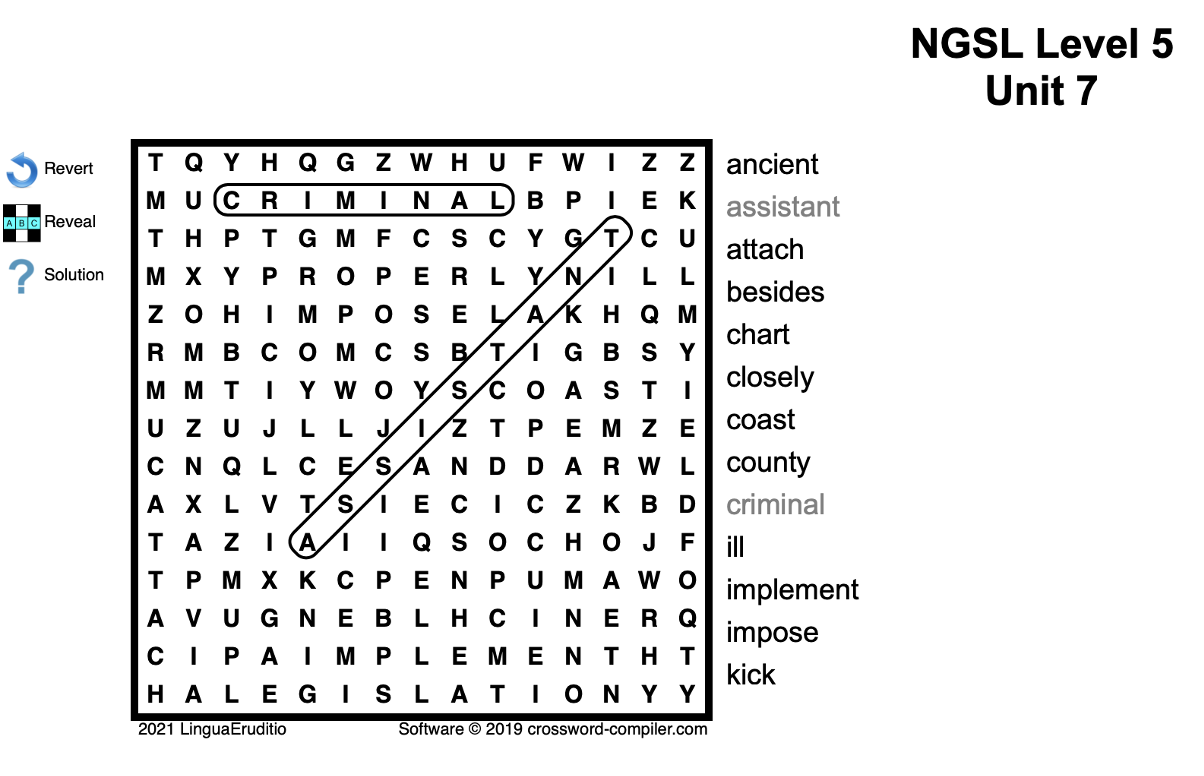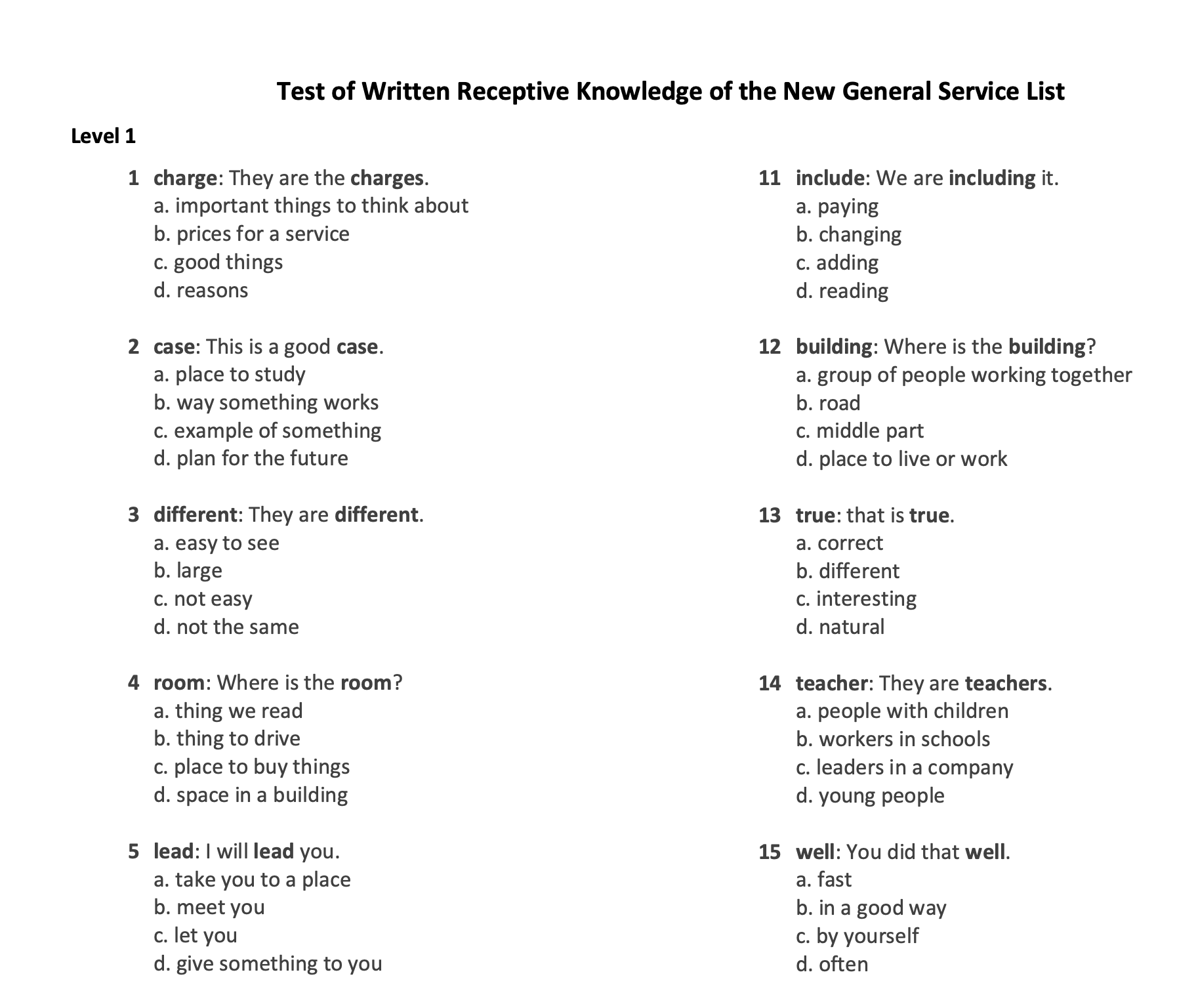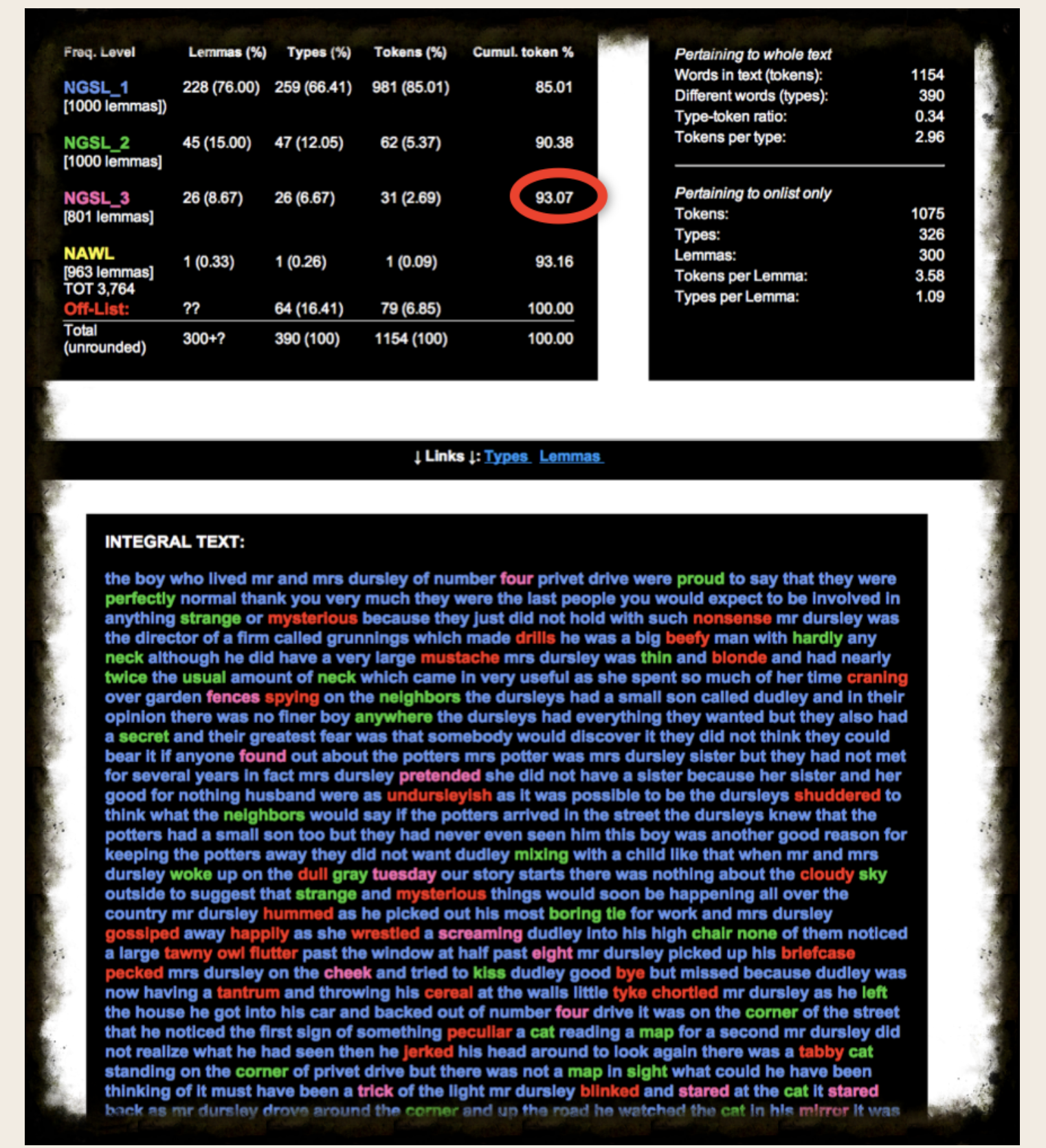
Our Online Tools
Below is a brief introduction to some of the free online tools we utilize (or have made ourselves) to help students, teachers and content developers to make better use of our wordlists. Direct links to these tools also appear on each of the wordlist homepages. Please note that some of the “free” resources we utilized early in the history of the NGSL Project are now becoming increasingly difficult to use as the companies have begun to hide more and more of their key functionalities behind paywalls to try and monetize what used to be a fully free resource (Quizlet and Kahoot are good examples of this). We are currently looking for other free learning tools and will slowly phase out the tools with paywalls as we bring the new ones online.
Teaching and Learning Tools
-
![]()
NGSL Wordle
Seeing the amazing popularity of the Wordle game around the globe, we wondered if we could create a version of the game to help students to review their study and knowledge of the NGSL. Though the original version only used 5 letter words, we expanded it it include 4, 5 and 6 letter words contained in the NGSL so that more than 1/2 of all NGSL words could be reviewed. Students can make use of our interactive NGSL Learning Dictionary to help them make their guesses (use the “puzzles” pulldown menu from the top).
-
![]()
NGSL Video Concordance
Although Youglish is designed and marketed as a tool to improve pronunciation, we believe it is equally powerful and useful as a video concordance, giving students and teachers instant access to each NGSL word being used in hundreds of authentic contexts. To access this function simple go to the NGSL Learning Dictionary and then click on the word you are interested in studying. The html link takes you directly to the Youglish site for that word.
-
![]()
NGSL Word Searches
Generated randomly from NGSL words and found from the Puzzle pulldown menu in our NGSL Project Learning Dictionary, students must try to find the key words in the puzzle as quickly as they can. This helps with recognizing each word as a string of letters and helps develop automaticity, a foundational part of word knowledge. In our TOEIC workbooks, word searches are used more systematically.
-
![]()
NGSL Crosswords
Generated randomly from NGSL words and found from the Puzzle pulldown menu in our NGSL Project Learning Dictionary, this activity strengthens the connection of word to meaning. In our TOEIC workbooks, crosswords are used in a more focused way that also helps develop scanning and critical thinking skills.
-
![]()
NGSL Kahoot Quizzes
Kahoot is a great, gamified way to review vocabulary in class, with students using their smartphones to complete with each other to answer the quiz questions as fast as possible. Go to the Kahoot website and use the search box to find stacks for our NGSL, TSL and other word lists. Despite the increasing number of paywalls, Kahoot can still be used for free.
-
![]()
NGSL Quizlet Stacks
Quizlet used to be a completely free gamified flashcard app with 7 different ways for students to interact and learn words. Unfortunately, only 3 activities remain in the free version. The good news is that we have created word stacks by frequency for most of our lists so that students can still use Quizlet to study the words they need to learn. These stacks can be accessed directly from each wordlist’s dedicated page (use the wordlist pulldown menu above).
-
![]()
NGSL Learning Dictionary
This is probably the most important and most powerful of our learning tools, providing learners with instant access to useful information for all of the words from all of our lists including pronunciation, part of speech, definitions from 6 different dictionaries and pronunciation help in multiple accents. The NGSL Learning Dictionary also powers many of our learning tools including the NGSL Placement Test, Crossword Puzzles, Word Searches and instant access to the Youglish video concordance. A direct link is here.
-
![]()
NGSL Spaced Repetition Flashcards
Created early in the history of the NGSL Project, these free apps provide simple spaced repetition flashcards for our NGSL and NAWL word lists (in English and Japanese, for Android and Apple). Due to the high cost of creating multiple dedicated apps for each wordlist, we are no longer updating these apps and have instead moved our efforts to a single paid app, Word-Learner, which contains all of our wordlists, a full LMS, 8 different gamified learning activities and a 90k proprietary learner’s dictionary with definitions in 12 languages. A link to all our apps for iOS is here and for Android here.
Text Analysis and Content Creation Tools
-
![]()
NGSL Placement Test
This simple online placement test developed by Brent Culligan quickly identifies which part of the NGSL your students should be studying. The test usually takes less than 10 minutes to complete and places students in the 100 word frequency band they should be studying in. Our Quizlet flashcards as well as our free NGSL Builder app teach the NGSL in the same 100 word bands used in the test. You can access the test via this link.
-
![]()
NGSL/NAWL Test
The NGSLT and NAWLT are diagnostic tests of written receptive knowledge of the New General Service List and New Academic Word List that was developed by Phil Bennett and Tim Stoeckel. The tests show very high reliability (over .90), and were designed to help place students in approximately the right frequency band for study of NAWL words via our Quizlet word stacks or our free NGSL and NAWL Builder flashcard apps. The tests, directions and answer keys can be downloaded here.
-
![]()
Online Graded Text Editor
(note: OGTE ‘s software code is now quite dated and key functions including ability to use updated versions of the NGSL lists have been lost. Please use Dr. Browne's brand-new NGSL Profiler Tool instead).
The OGTE was developed by Charles Browne and Rob Waring back in 2014. It was designed to be a simplified version of the excellent VocabProfile and AntWord Profiler tools. It still has limited functionality with several wordlists and can be accessed here. -
![]()
AntWord Profiler
AntWordProfiler is of the many excellent freeware tools developed by Laurence Anthony, which helps you to profile the vocabulary level and complexity of a text. To use AntWord Profiler with the NGSL, you would import the NGSL reference list from the Resource section of the Antword Profiler webpage which can be found here.
-
![]()
VocabProfile
VocabProfile is one of the earliest vocabulary profiling tools, a web-based version of Paul Nation’s Range program developed and maintained by Tom Cobb, and part of a huge collection of free corpus-based tools found at his Compleat Lexical Tutor website. To use NGSL wordlists with VocabProfile, go to the link below and select “NGSL+NAWL” or “+TOEIC” or “+Biz” from the right hand menu. The direct link is here.
-
![]()
NGSL Profiler - NEW!!
The NGSL Profiler is an online text analysis tool which uses wordlists for ESL/EFL learners from the NGSL Project to analyze the difficulty of a text and to simplify it to the level of your students or intended audience. It contains all eight NGSL word lists including our new NGSL-GR for making graded readers, and also includes two new AI-powered tools for generation of fiction texts as well as the simplification of existing texts. You can try out all three tools here













